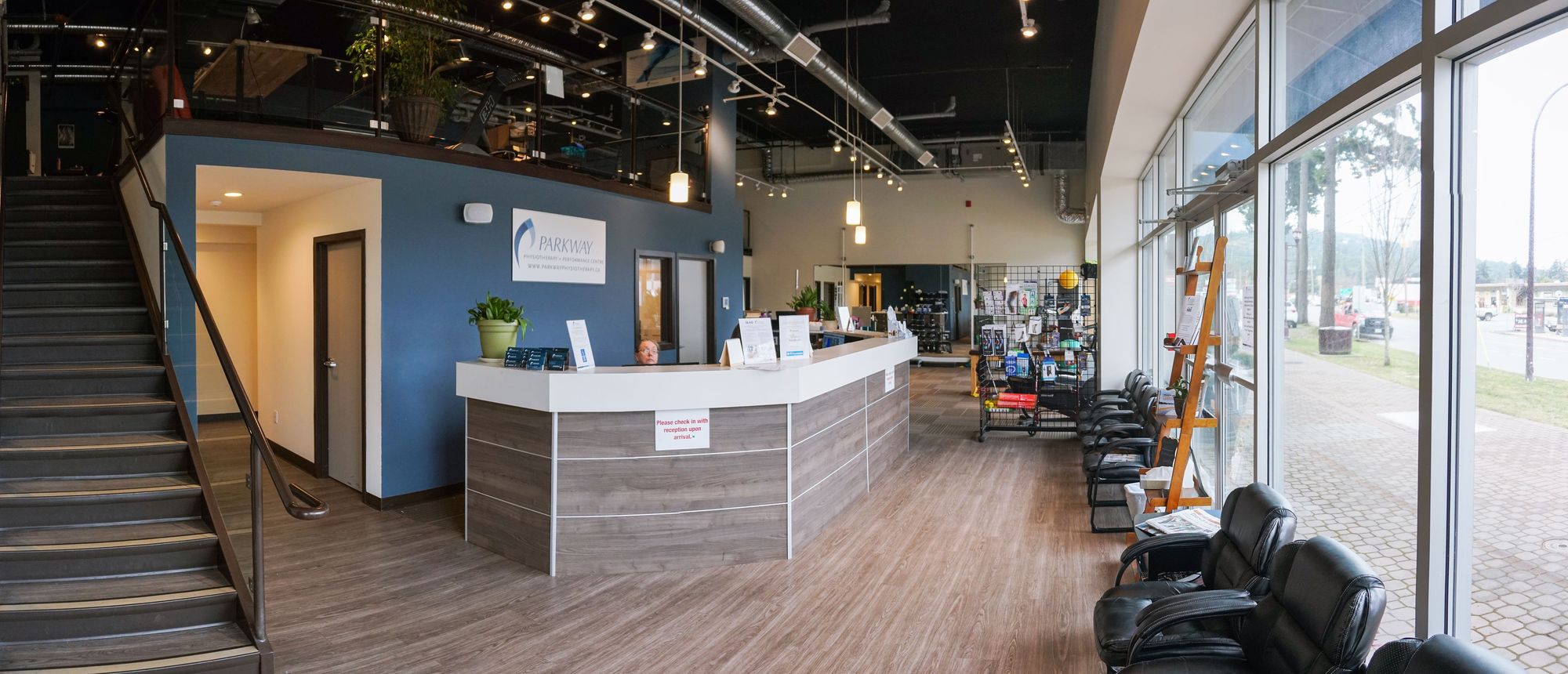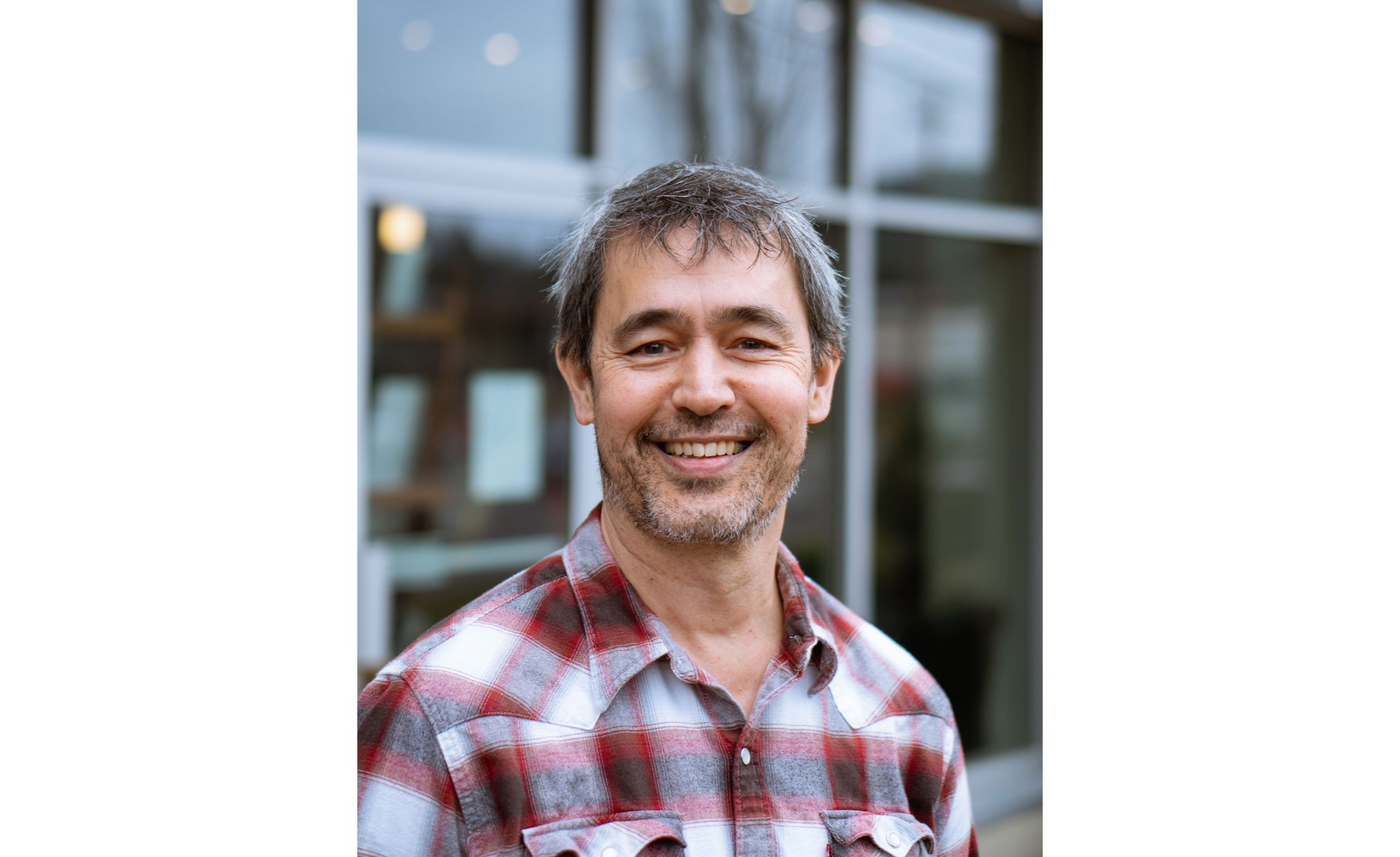Interested in starting your own entrepreneurial journey in health and wellness but unsure what to expect? Then read up on our interview with JR Justesen, CEO of Parkway Physiotherapy + Performance Centre, located in Victoria, BC, Canada.
What's your business, and who are your customers?
We primarily provide physiotherapy services, but also kinesiology, chiropractic, massage therapy, athletic therapy, and soon will offer nutritional and counselling consultations as well. Our best customers are those folks who are injured yet who want to take control of their situation and their injury recovery. When we partner with patients who are motivated to see themselves better, then we usually see the best results all around! By motivated to get better, we mean that the client is interested in the educational part of our assessment and diagnosis process, are open to sharing our findings with their doctor(s), is keen to participate in the active/exercise components of rehabilitation, and attend their scheduled sessions.

Tell us about yourself
I'm the CEO of the Parkway Physiotherapy and Performance Centre group of clinics. Our group has been serving the people of Victoria's Westshore and also the North Shore of Vancouver since 2007. Although I still have two days of client care (because I still love it!), my main job has been to support our teams through clinician recruitment, clinic marketing, and also through team development and mentorship toward a variety of goals. Earlier in my career, I would not have imagined that anything outside of clinical care and direct patient interactions would have filled my boat, so to speak. Now I get to watch my teammates grow in the direction they want, which provides them with wonderful fulfillment, and also, we get to serve more people than I once thought possible.
What's your biggest accomplishment as a business owner?
It might be the way we handled the COVID business closures. COVID led us down a few different roads, both from a service perspective and also in the way we decided to build and manage our relationships with our clinical and administrative team. I'll start with our working relationships because this created a strong foundation for the other things to come from how we dealt with COVID-19. When the government shut us all down across the country, we were chatting with other clinic leaders across Canada. We learned that many clinics were laying off their entire teams to ensure their clinic could survive the tough times. We decided that we would take a chance on the closures being relatively short-lived, and so we brought the following scenario to the team.
We began the conversation with: "Team, you've all heard that we've been forced to close the clinic for an indefinite period of time. Let's all suffer together through this COVID thing that none of us have any idea about. If we suffer through it together, then we've got a better chance of getting through it together. This said, some of you may fear getting sick and want to stay home and simply take the government cheque for $2K, and that's totally okay. For those of you who want a chance to keep earning beyond $2K per month, to do this we have to see a minimum of x patients per week via telehealth. This means you will be essentially working your first several days for free in the sense that there's free government money being offered, and you could stay home and receive $2000 per month, no questions asked. However, you might also be able to serve far more people if you reach out to each and every patient to see what their needs are.
At the end of the day, nobody made a lot more than the $2000 per month; however, the team was overwhelmingly happy to be working and to be serving the clients they had come to really care for. We all learned that clinical care has a huge component based on our brains rather than requiring hands-on care, which was a massive mindset shift for many people. Two incredible things happened as a result of this approach: First, we built an enormous amount of trust by being transparent with our team and by sharing patients and telerehab visits rather than keeping them in the ownership group. Second, By keeping our team intact, we hit the ground running as it were, rather than find ourselves scrambling to re-establish clinician relationships. Our team was resilient, and we were amazed at the dedication to client care that they exhibited when in reality, any one of them could have chosen to remain at home and earn about the same amount of money.
Now in terms of how this approach affected our client relationships, a few amazing things happened here as well. We maintained client relationships so that when thankfully, we did finally reopen our clinic a short while later, business exploded. Clients were so happy to have ongoing contact with their clinicians. Even the ones who chose not to attend because they received the most value from the hands-on care were also happy because they had email connections where they could ask questions. Then, we served a surprising number of telerehab sessions over the period of clinic closures. There were well over 300 of these visits per week. On phone calls to clinic owners across Canada, this was well beyond any clinic we knew of, and the reason was that client–clinician relationships were specific to two people (for the most part) and so turning that trust over to someone else (e.g., the clinic owner) just did not go over well.
Finally, it is now pretty well known that tons of people bought their own workout equipment for home and began doing their routines during COVID. By keeping each teammate connected to their patients, we learned that lots of people sustained different injuries during the COVID lockdowns. One example would be the person who took up jogging during this period and asked for advice on some lower body pain that they'd never had before. Others were using weights and bands and found that they noticed some pain elsewhere in their body, so they leaned in for advice on exercise form. At the end of the day, had the lockdowns continued, we may not have survived, but working out the way it did brought our team closer together and served our patients to a level that surprised us all. To this day, we still provide telehealth services over video calls.
What's one of the hardest things that comes with being a business owner?
People are counting on us to make a living and keep the mortgage paid. There's no let-up in performance.
What are the top tips you'd give to anyone looking to start, run and grow a business today?
- Culture eats strategy for breakfast. Plan for an amazing workplace culture from moment one.
- Leadership is key. Look to share leadership roles across your team as early as possible.
- Track key performance indicators and business metrics every week, month, and quarter so that you can observe and plan and make changes that are proactive rather than reactive.
Where can people find you and your business?
Website: https://parkwayphysiotherapy.ca/
Facebook: https://www.facebook.com/ParkwayPhysiotherapy
Instagram: https://www.instagram.com/parkwayphysio/
If you like what you've read here and have your own story as a solo or small business entrepreneur that you'd like to share, then please answer these interview questions. We'd love to feature your journey on these pages.
Turn your craft into recurring revenue with Subkit. Start your subscription offering in minutes and supercharge it with growth levers. Get early access here.
